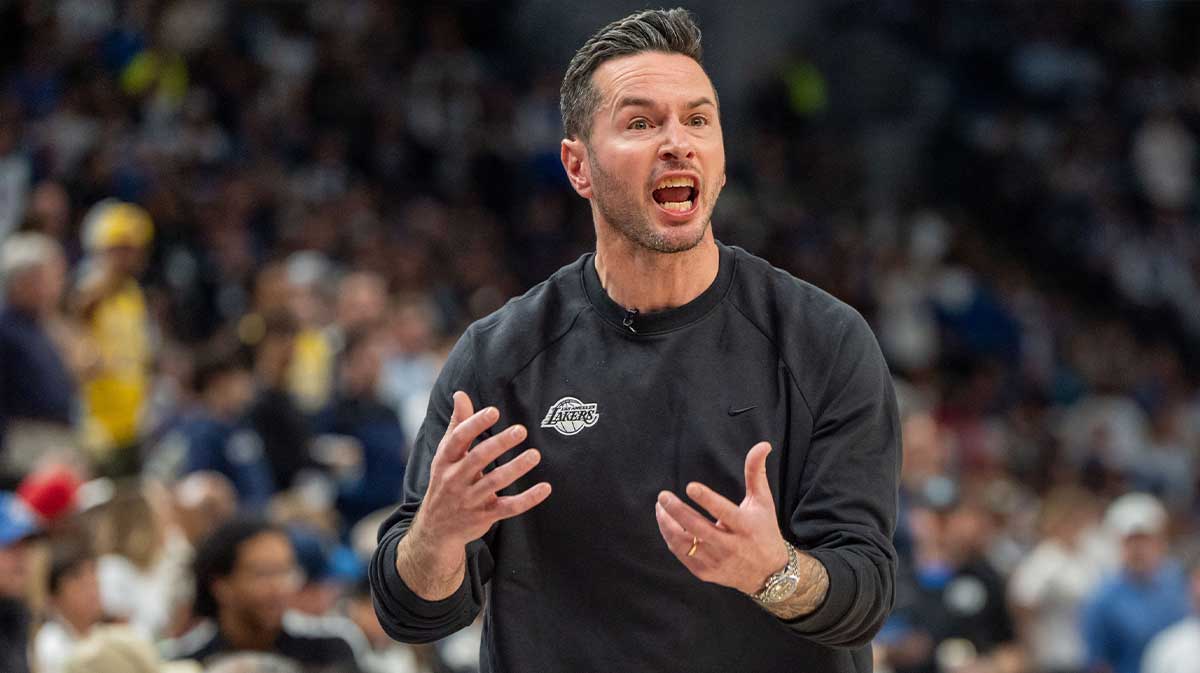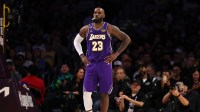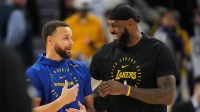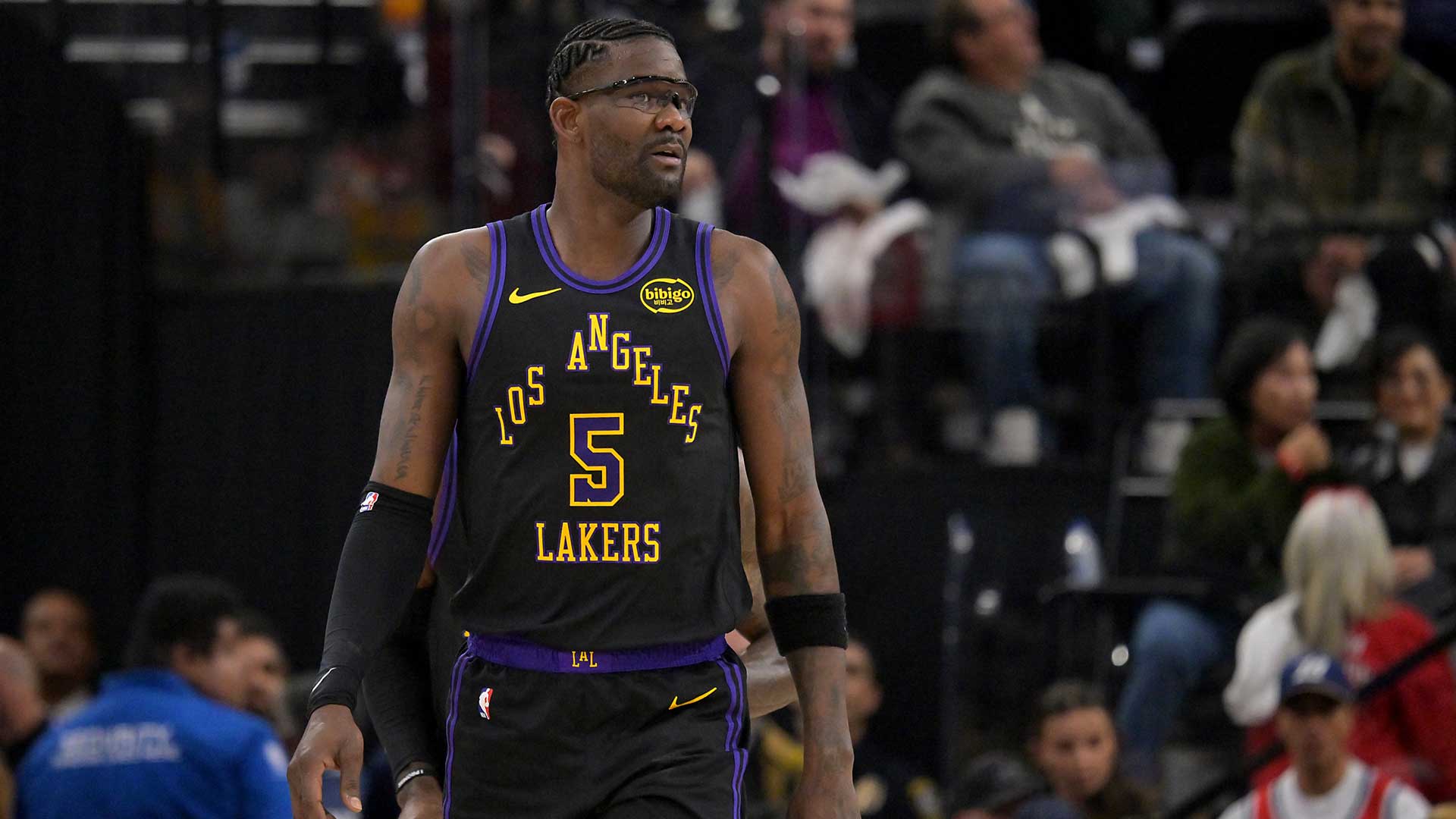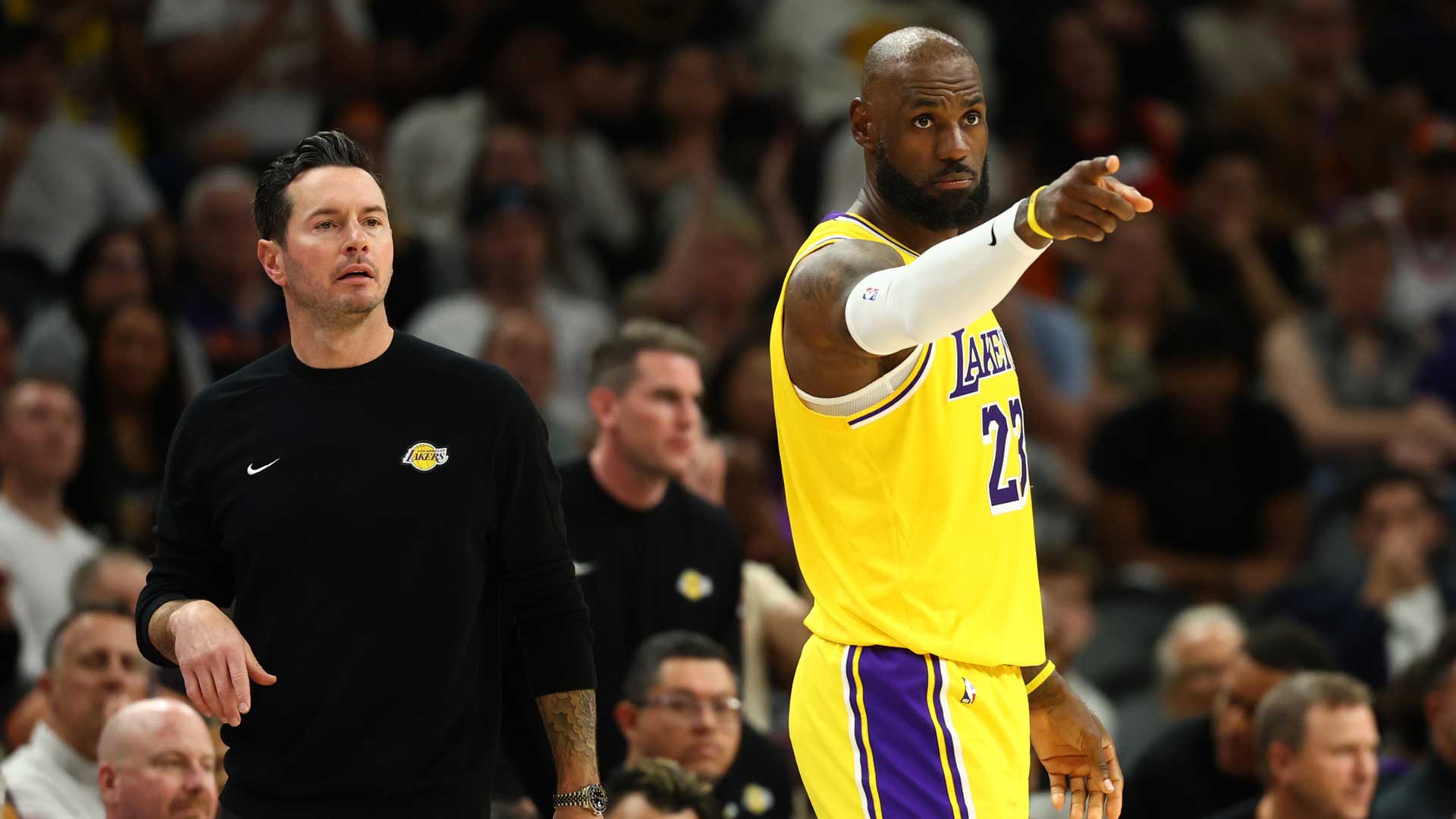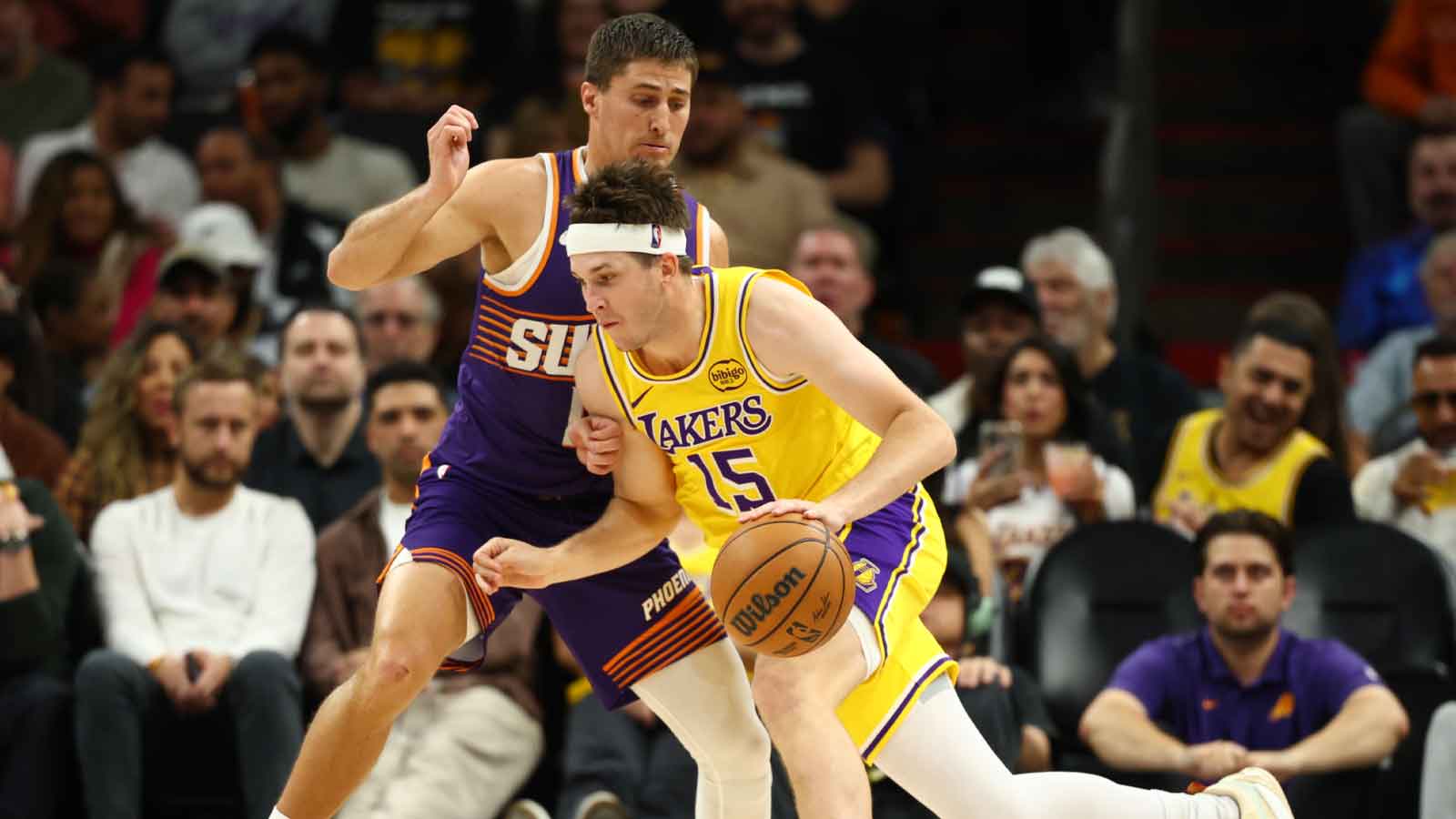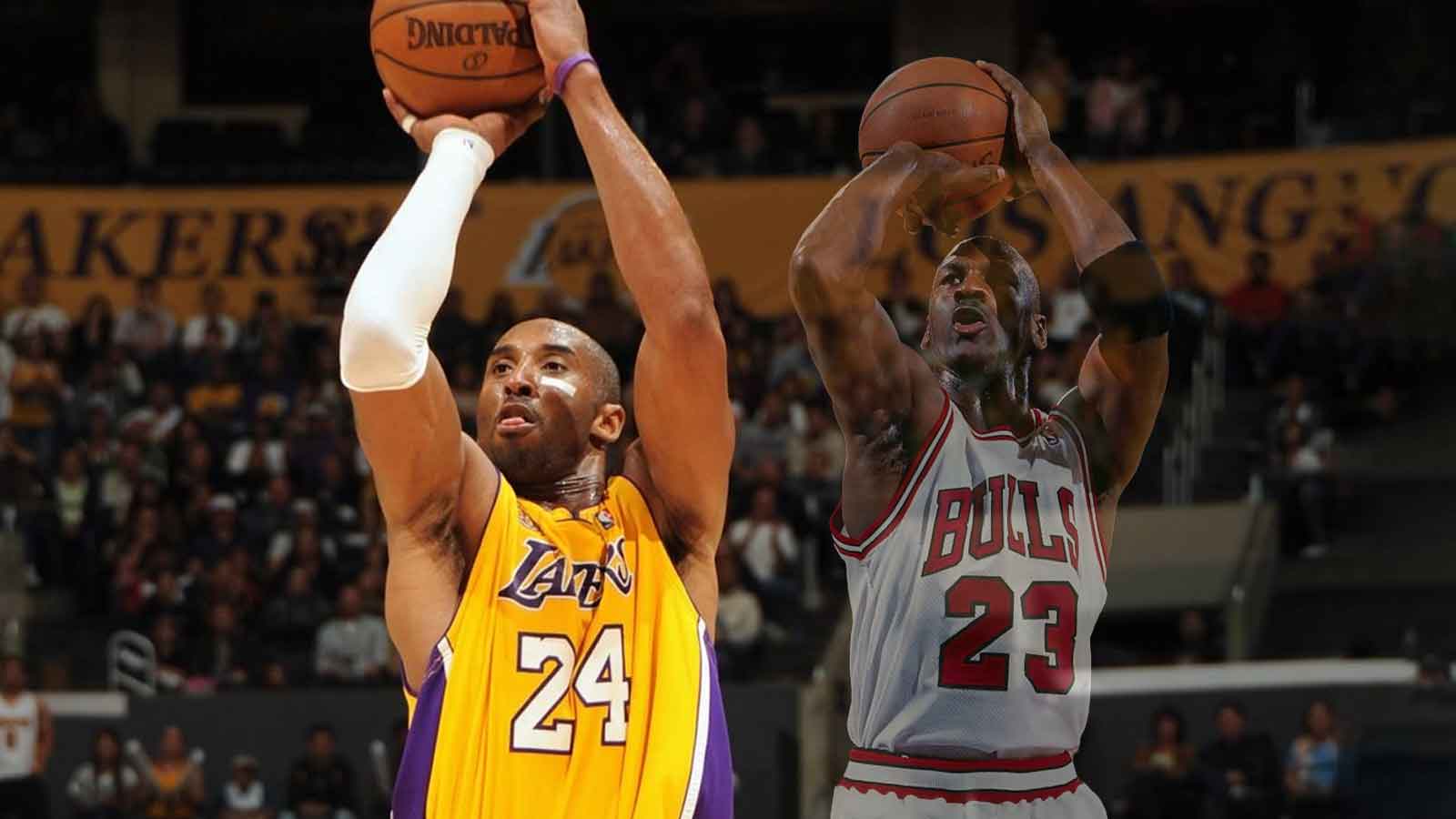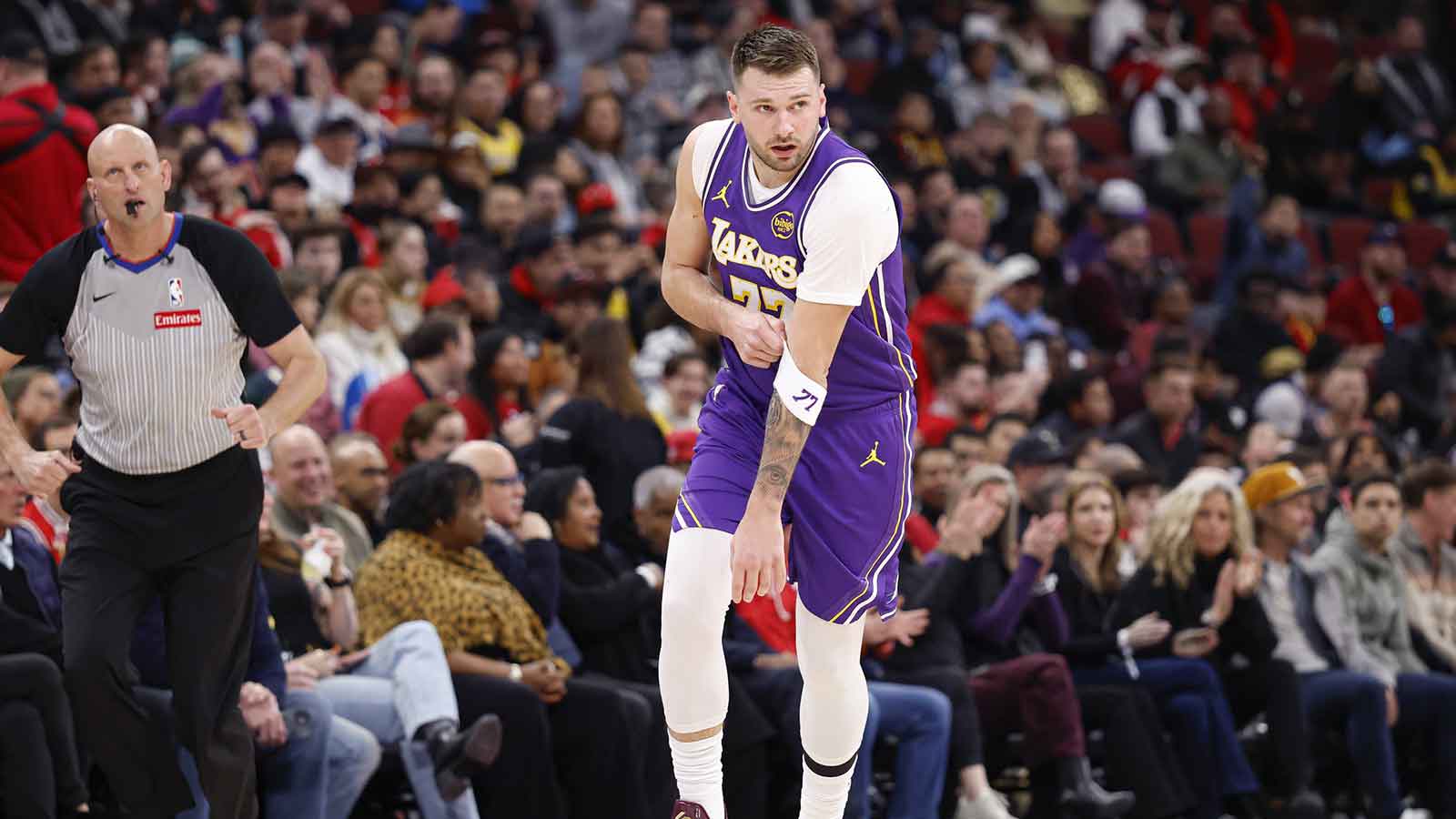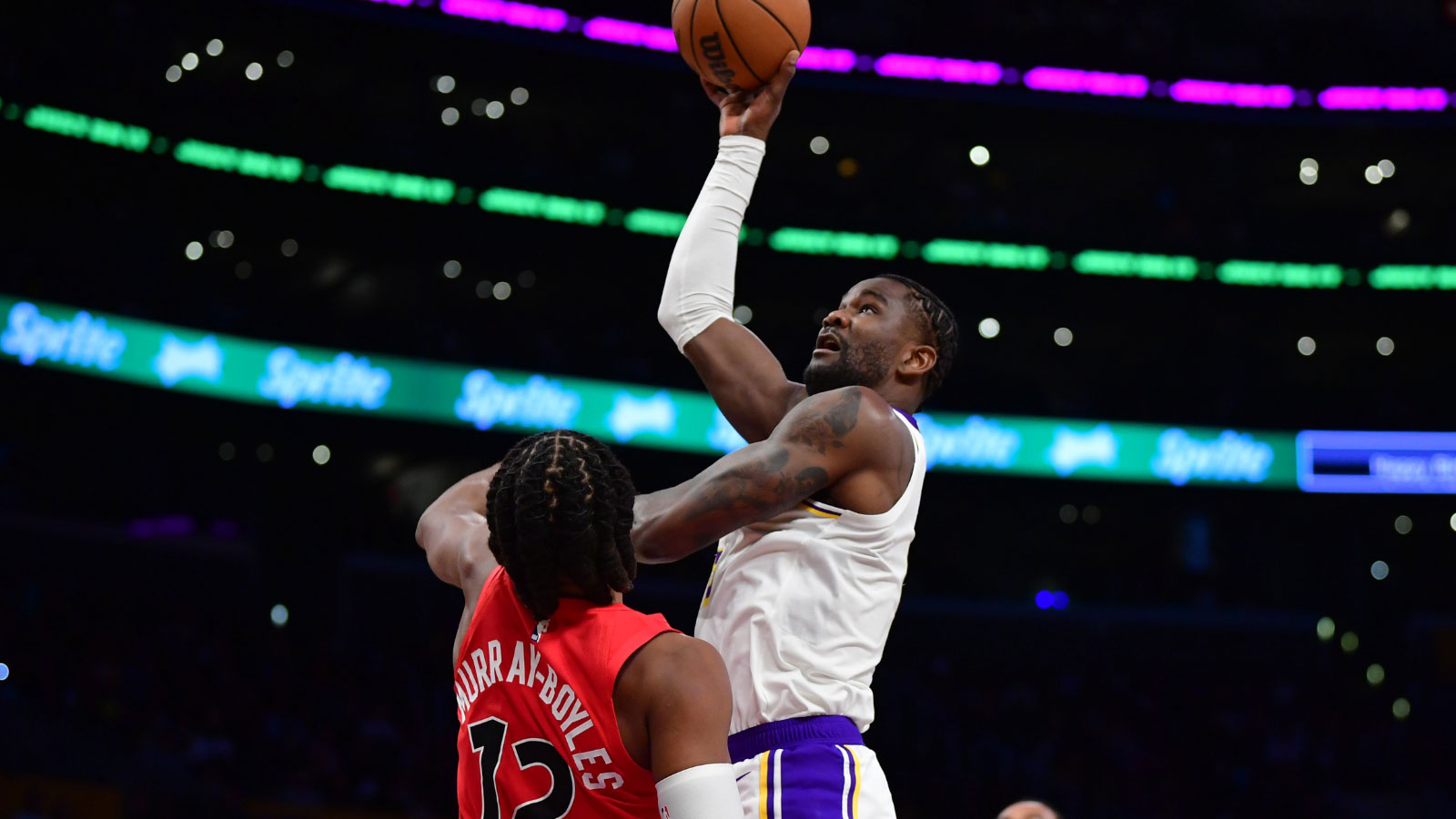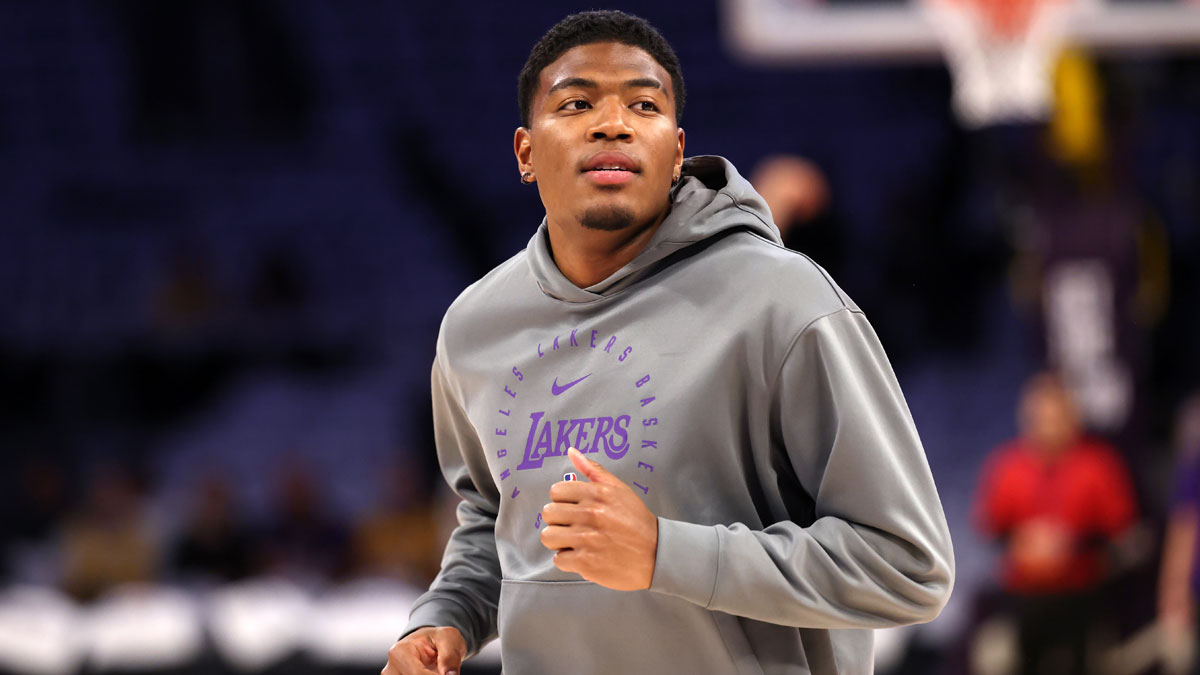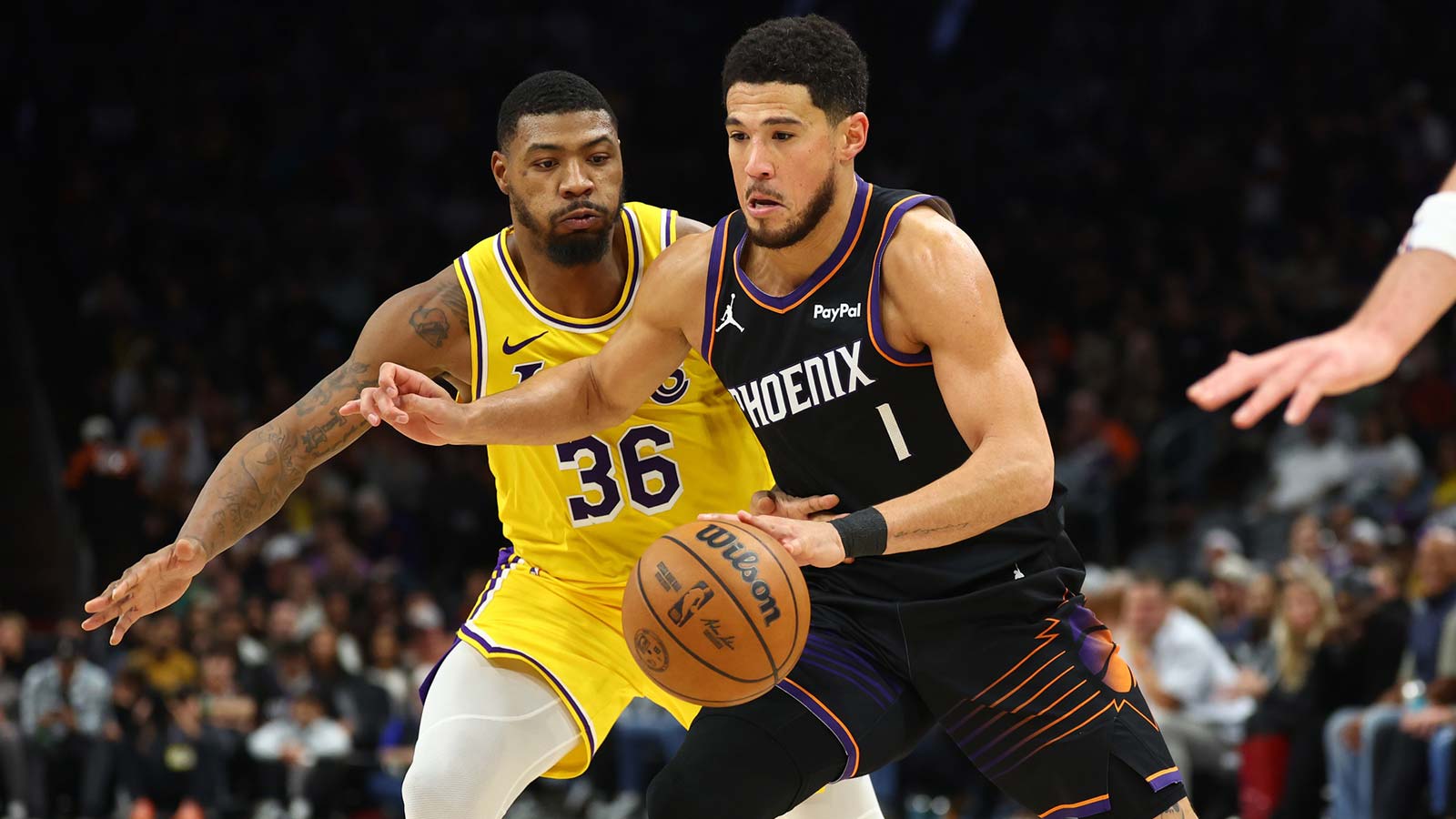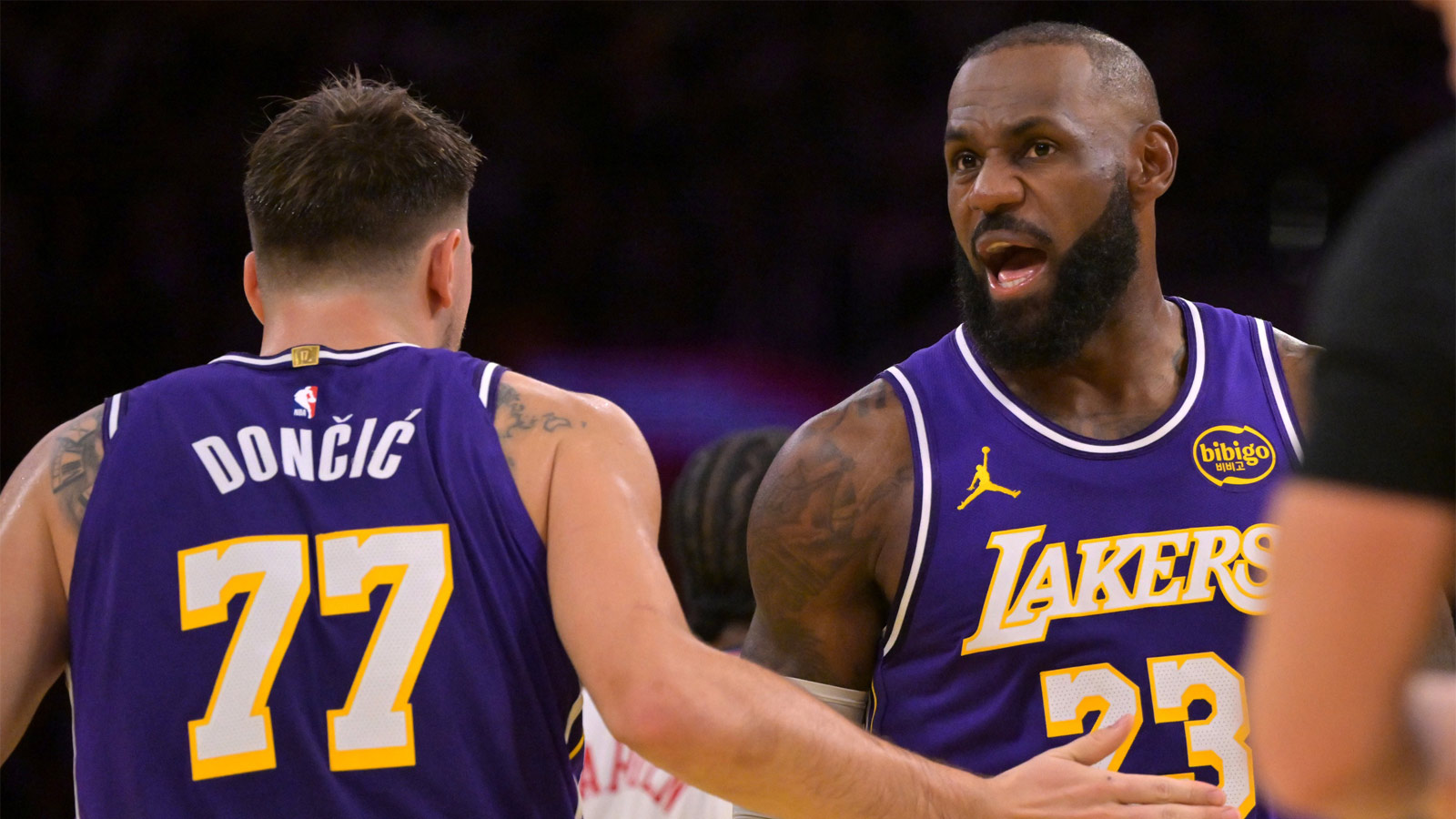When I saw that the Lakers drew the Timberwolves as a first-round playoff opponent, I was relieved. While the Lakers are my favorite team, I enjoy watching the Timberwolves play and rooting for Anthony Edwards. I watched them consistently in the regular season, and I saw several ways that the Lakers could beat them. I predicted they'd do so in five games.
But, I couldn't have been more wrong. The Timberwolves proved themselves to be the better team in this series, and Anthony Edwards has officially arrived as truly one of the best players in the sport of basketball.
But the Lakers did just as much to lose this series as the Timberwolves did to win it. From poor roster construction, bad coaching, stagnant offense, and porous defensive effort, it was clear that the Lakers were poised to lose this series.
But three people are ultimately to blame for this outcome: Rob Pelinka, JJ Redick, and Luka Dončić.
Rob Pelinka
Many Lakers fans have expressed frustration with Rob Pelinka, largely because during much of LeBron James's tenure with the team, he appeared hesitant to build a truly competitive roster around the superstar talent at his disposal. Initially, it was James and Anthony Davis who carried the load, and now with James and Luka Dončić, similar concerns persist.
This past offseason presented a golden opportunity for Pelinka to reshape the team, especially with LeBron reportedly willing to take a pay cut to make it happen. Yet, the changes Pelinka managed to execute were largely incremental. The Lakers' success has often hinged on the roster's construction, teetering on the edge between underperforming or being stuck trying to claw their way to contention.
Even this season, there were viable options to complement LeBron James and Anthony Davis and then eventually Luka Dončić. For instance, the Lakers were linked to Utah Jazz center Walker Kessler, though Danny Ainge reportedly set a high price.
Some fans also advocated for Nic Claxton, believing his athleticism would mesh perfectly alongside James and Davis, and later alongside James and Dončić. But in the end, Pelinka failed to secure these key pieces. For a franchise that thrives on its rich history of dominance, many fans are left wondering if Pelinka is maximizing the potential of the superstars the Lakers are fortunate to have.
I’m not saying that adding Walker Kessler, Nic Claxton, or another athletic or defense-oriented center would have been the ultimate solution to the Lakers’ problems. There were still plenty of gaps in that roster—lack of athleticism, inconsistent shooting, limited playmaking, and defensive weaknesses—that needed attention.
However, in this series, particularly with how the Timberwolves challenged the Lakers, having a physical presence to counter Rudy Gobert in Game 5 would have made a significant difference. Rob Pelinka often gets credit for making obvious trades. Yes, moving D’Angelo Russell for Dorian Finney-Smith was a smart move, and the Luka Dončić trade was brilliant.
However, Pelinka has yet to prove he can build a well-rounded roster that doesn’t rely entirely on his star players performing at a superhuman level. It feels like he peaked as a general manager in 2021, right before the ill-fated Russell Westbrook trade.
Before even discussing on-court performance, responsibility needs to fall on Pelinka for constructing a roster that was fundamentally incomplete—ill-equipped to compete against a team as athletic, cohesive, and physically imposing as the Timberwolves. Teams like Minnesota, with their grit, size, and ambition, exposed the Lakers' vulnerabilities.
Julius Randle was the X-factor in Game 4. Rudy Gobert played the same role in Game 5. Meanwhile, the Lakers’ lack of athleticism, defensive strength, and balanced roster construction was glaring. Anthony Edwards slashed to the rim at will, and Jaden McDaniels added to the Timberwolves’ dominance. The Lakers simply couldn’t rise to the challenge.
Rudy Gobert delivered the performance of his career in 2025, silencing critics and proving to the NBA world that he remains a reliable and effective center. Julius Randle demonstrated his remarkable skill set and physicality, an invaluable asset in the playoffs, where the game slows down and demands a more strategic, methodical approach.
However, the pressure is on Rob Pelinka to step up and make smarter moves. Without meaningful improvements, no matter who is on the roster, the Lakers will struggle to remain legitimate contenders.
JJ Redick
J.J. Redick is widely regarded as one of the sharpest basketball minds in the game. He demonstrated his deep understanding of the sport for years, both on his podcast and as a key member of ESPN’s team. Whether as a panelist on First Take or as part of the lead commentary team during the NBA playoffs last season, J.J. consistently showcased his expertise and insight.
With a bright future ahead as a top basketball analyst, J.J. made the bold decision to pursue his dream of becoming an NBA head coach. That ambition led him to land the prestigious head coaching job with the Los Angeles Lakers. While some questioned the move, given his lack of coaching experience, many believed his exceptional basketball IQ and relentless drive would compensate for it.
J.J. Redick has already silenced critics, proving himself in the regular season. His transition from analyst to head coach is shaping up to be a resounding success, and he looks poised to become one of the league’s most impactful coaches. In his first year, he led the Lakers to secure the third seed in the Western Conference, earning home-court advantage.
However, JJ's performance as a coach in this playoff series highlights why opting for an inexperienced coach can sometimes backfire. There are moments when a more seasoned coach—someone familiar with high-pressure playoff situations—can make all the difference. Experienced coaches bring valuable insight from past wins and losses, along with the ability to make critical adjustments during a best-of-seven series.
As we all know, the NBA playoffs demand adaptability. The ability to analyze, adjust, and respond is often the key to success, and this series underscored the importance of that experience. JJ demonstrated a remarkable ability to adapt on the fly, effectively managing rosters that, while limited in depth, were centered around two exceptional stars. First, he worked with LeBron James and Anthony Davis, and later with LeBron James and Luka Dončić.
When facing an athletic, sizable, and rangy team like the Minnesota Timberwolves, determined to shut down Luka Dončić and disrupt your rhythm by avoiding set plays, the game often devolves into Luka dominating possession, isolating, and trying to create opportunities on his own.
The Timberwolves, executing Chris Finch's gameplan flawlessly, strategically placed multiple defenders on the wing, creating a four-on-one scenario against Luka. They wanted Luka to get going and “cook” Rudy Gobert and Julius Randle. As long as he looked to get his shot going, the Lakers's offense would ultimately stall.
Then effectively exploited one of the Lakers' biggest weaknesses: the lack of a true center and a soft interior defense. There's minimal depth at the five spot, and while LeBron can fill the power forward role, the team lacks a true, brusing power forward that could go head up with Julius Randle and moonlight as an interior and perimeter defender whenever needed.
The Timberwolves capitalized on the fact that in man-to-man defense, several players in your starting lineup and roster struggle with lateral quickness. They couldn’t keep up with explosive players like Anthony Edwards or stay in front of Jaden McDaniels. These defensive shortcomings were repeatedly exposed.
On top of that, JJ made several coaching mistakes throughout the series, which ultimately cost the Lakers crucial opportunities. With better coaching adjustments, the series might have extended to six or seven games instead of ending in just five. Unfortunately, these repeated missteps sealed the team’s fate.
From choosing to bench Jaxon Hayes in the latter half of the series, where Rudy Gobert delivered the best playoff performance of his career in Game 5, to sticking with the lineup he started in the second half of Game 4 for the remainder of that game, each decision carried significant weight.
Luka Dončić, recovering from a stomach virus, and LeBron James, now 40 years old, were clearly exhausted and unable to secure the victory in Game 4. Game 1 saw the Lakers come out strong, looking like the superior team. Luka seemed unstoppable, scoring at will, while LeBron appeared ready to contend for another Finals run with this roster. Austin Reaves looked poised to make a significant impact.
Early on, it seemed like the Lakers might make quick work of the Timberwolves. But then, momentum shifted. From the second quarter of Game 1 onward, Chris Finch and the Timberwolves coaching staff made critical adjustments. Finch’s playoff experience and the team’s continuity proved to be the difference.
In contrast, Redick struggled to adapt. While JJ showed promise during the regular season, the playoffs exposed a lack of experience and an unwillingness to adjust when it mattered most.
Finch stayed true to his team’s identity, proving that the Timberwolves could play big and still score efficiently. Anthony Edwards emerged as the best player in the series, consistently leading his team, even when his own offense faltered. The Timberwolves exploited the Lakers’ weaknesses, while JJ failed to adjust or mask those vulnerabilities effectively.
JJ’s coaching in this series was, frankly, disastrous. To grow as a coach, he needs to recognize that it’s okay to make mistakes, but it’s crucial to learn and adapt. His stubbornness and reluctance to make changes cost the Lakers dearly.
JJ Redick has the potential to become an outstanding coach, but this series should serve as a wake-up call. The majority of the blame for the Lakers’ loss falls on his shoulders. He must learn from this experience, embrace adaptability, and understand that great coaching is about making the right decisions when it matters most.
With LeBron James and Luka Dončić on the roster, the Lakers had the talent to win, but poor decisions and a lack of preparation sealed their fate.
Luka Dončić
I’m a huge fan of Luka Dončić, and I firmly believe the Lakers have a bright future ahead. That said, I think sports fans sometimes set unrealistic expectations for their teams. When the Lakers added Luka to their roster, I was skeptical that it would immediately elevate them to championship contention.
However, seeing Luka don the iconic Lakers uniform and play at the highest level was a game-changer. Add to that the presence of LeBron James—still an elite player averaging 24 points per game—and the emergence of Austin Reaves as a reliable third option. At that point, I genuinely believed the Lakers could contend.
But for the Lakers to truly compete, Luka needed to step up not just offensively, but defensively as well. His playoff numbers were undeniably impressive: averaging 30 points per game, shooting 45% from the field, and logging 41 minutes per game. On paper, those stats are stellar. But watching the games told a different story. The way Luka was scoring wasn’t conducive to winning in today’s NBA.
The era of heliocentric basketball, where everything revolves around one dominant player, is over. The league has evolved too much. Players are more skilled, coaches are savvier with defensive strategies, and team defenses are designed to neutralize one-dimensional offensive systems.
Unfortunately, Luka’s approach often disrupted the Lakers’ offensive flow. He held the ball too long, settling for too many step-back threes. While he did hit some big shots—like five three-pointers in both Game 1 and Game 4—many of his attempts were forced, low-percentage shots.
He wasn’t leveraging his strengths—his ability to play at his own pace, use his physicality, and get to the basket. Instead, he fell into the trap of jacking up contested jumpers, which disrupted the team’s rhythm and gave the Timberwolves opportunities to seize control of the game.
For the Lakers to succeed, Luka has to adapt. Talent alone isn’t enough. The playoffs demand a smarter, more dynamic approach, both from individual players and the team as a whole.
Luka Dončić’s defensive performance in this series was disappointing, to say the least. While he occasionally showed flashes of brilliance—staying in front of players like Anthony Edwards and Jaden McDaniels—these moments were few and far between.
For much of the time, Luka was outmaneuvered, often resembling a traffic cone during a driving test. At times, he appeared to simply give up on defense, allowing the Timberwolves, especially Anthony Edwards and McDaniels, effortless drives to the basket. Some of the layups they scored were among the easiest of their careers.
This isn’t to suggest that Luka doesn’t care about winning; his competitive spirit is undeniable. However, his conditioning remains a glaring issue. After Game 3, where he battled a stomach virus, it was evident he struggled to regain his full form. And that should be understandable, especially those of us who have had a stomach bug before. It isn't fun!
Yet, even before the illness, his stamina and overall fitness needed improvement. Conditioning is, without question, the area Luka must prioritize the most. Offensively, Luka Dončić is already one of the most gifted players we’ve ever seen. His ability to score, create plays, and dominate on that end of the court is remarkable. What’s even more exciting is that he still has room to grow offensively, which is a frightening thought for the rest of the league.
Luka has all the tools to become an MVP, whether it’s next season or within the next five years. However, for Luka to reach his full potential as an all-time great, his defense must improve. Effort and physical conditioning are foundational to playing effective defense, and Luka’s energy on that end of the floor has often been lacking.
Great players not only dominate offensively but also find ways to impact the game defensively. Luka doesn’t need to become an elite one-on-one defender, but he must commit to better lateral movement, defensive positioning, and making it more challenging for players like Anthony Edwards to score.
The Mavericks' handling of Luka’s reputation was also questionable. Nico Harrison and the organization were wrong to suggest Luka was unfit, overweight, or incapable of leading a team to success. Luka swiftly silenced those notions, delivering a 40+ point performance against the Mavericks at the end of the season. Again, Nico was not right, and there's nothing in this series that proves him to be correct.
That said, acknowledging Luka’s greatness doesn’t mean we can’t ask for more. Luka must elevate his approach to the game, particularly on defense and conditioning. There’s nothing wrong with recognizing areas for improvement, and it’s clear Luka has the ability to address these issues.
His defensive effort must match the intensity he brings to the offensive end.
The best players in the league impact the game on both ends of the floor. Luka has to make that leap. And I believe he will.
The Final Verdict
This isn’t meant to overcriticize Rob, JJ, or Luka, nor is it intended to come across as a rushed or poorly considered take. However, Lakers fans know these three figures within the organization were a significant part of the problem in this series.
As the playoffs progress, all three need to take the next few months leading into the offseason to reflect deeply. They must determine what their next steps are necessary to position the Lakers for success in a rapidly evolving league.
The NBA is changing, and Rob Pelinka, JJ Redick, and Luka Doncic must ensure the Lakers adapt and don’t get left behind. They have an incredible opportunity to shift momentum and restore the Lakers to the dominant, championship-contending organization they’ve been for much of the league’s history. The work should start now.

